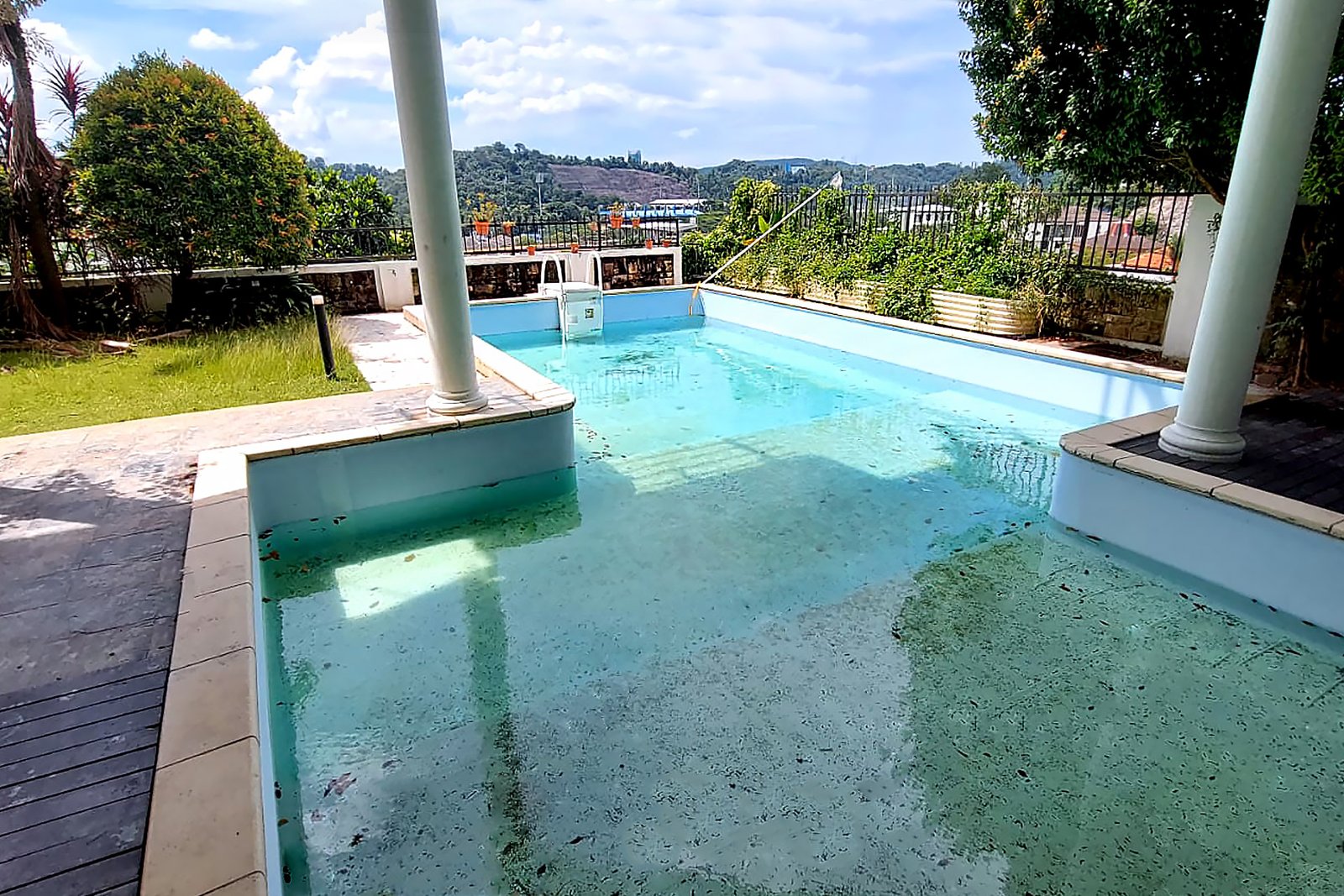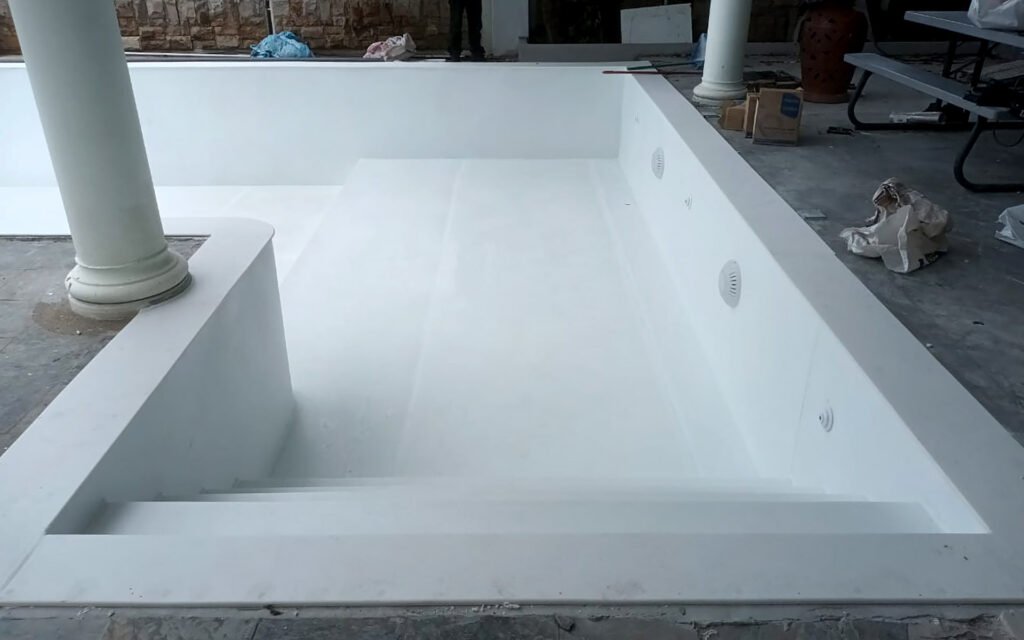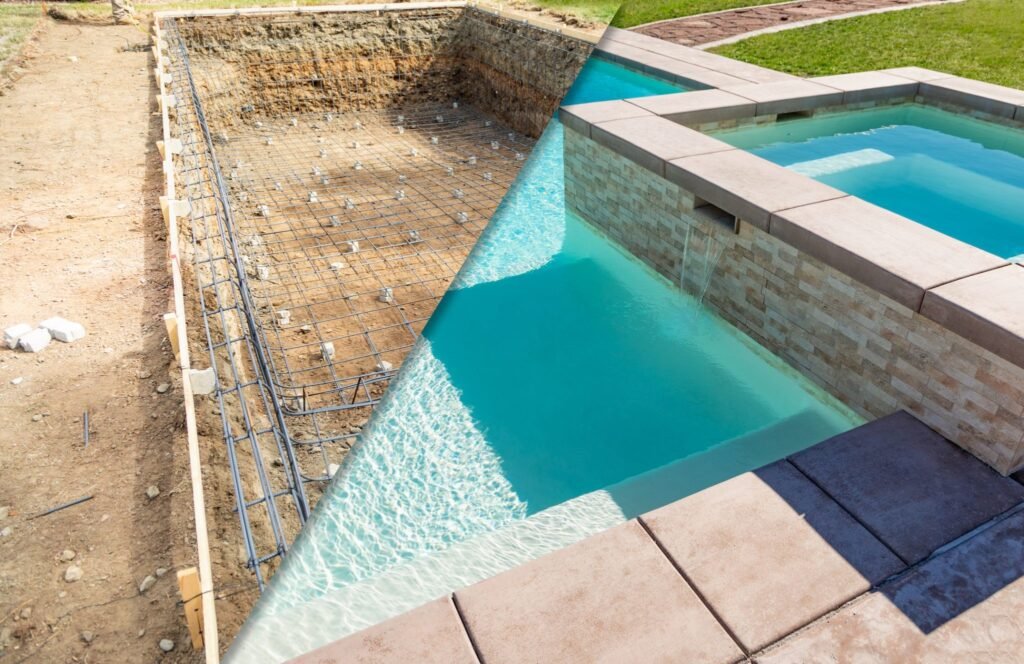HDPE Swimming Pool
HDPE Swimming Pools are swimming pool structures constructed primarily using High-Density Polyethylene (HDPE), a durable and versatile plastic material. These pools offer several key features:

Durability: HDPE is highly resistant to corrosion, rust, and degradation caused by exposure to water, chemicals, and sunlight, ensuring the long-term durability of the swimming pool structure.
Versatility: HDPE allows for flexibility in design, enabling the creation of various shapes, sizes, and configurations to suit different preferences and space requirements.
Quick Installation: HDPE swimming pools can be prefabricated off-site, allowing for faster installation compared to traditional concrete or fiberglass pools. This results in reduced construction time and labor costs.
Low Maintenance: HDPE pools require minimal maintenance over their lifespan. The smooth surface of HDPE prevents algae growth and makes cleaning easier, reducing the need for chemical treatments and maintenance efforts.
Chemical Resistance: HDPE is resistant to chemicals commonly used in pool water treatment, such as chlorine and bromine, ensuring the integrity of the pool structure and reducing the risk of damage over time.
Insulation Properties: HDPE has insulating properties that help retain water temperature, reducing heat loss and energy consumption associated with pool heating systems.
Environmentally Friendly: HDPE is a recyclable material, making HDPE swimming pools a more environmentally friendly option compared to traditional pool materials like concrete or fiberglass.


Advantages of HDPE Swimming Pools compared to other types of swimming pools:
Cost-Effectiveness: HDPE swimming pools often have lower initial costs compared to concrete pools, and their quick installation can result in overall cost savings.
Customization: HDPE allows for greater customization in pool design compared to fiberglass pools, which are typically prefabricated in standard shapes and sizes.
Durability: HDPE swimming pools are more durable than fiberglass pools, which can be prone to cracking and fading over time.
Ease of Installation: HDPE pools can be installed more quickly and with less disruption compared to concrete pools, which require extensive excavation and curing time.
Low Maintenance: HDPE pools require minimal maintenance compared to concrete pools, which may require frequent resurfacing and chemical treatments to maintain their appearance and structural integrity.
Overall, HDPE swimming pools offer a durable, versatile, and cost-effective alternative to traditional pool materials, providing homeowners with a convenient and low-maintenance option for enjoying their outdoor living space.
